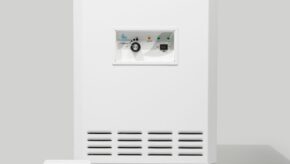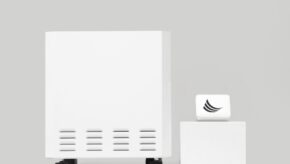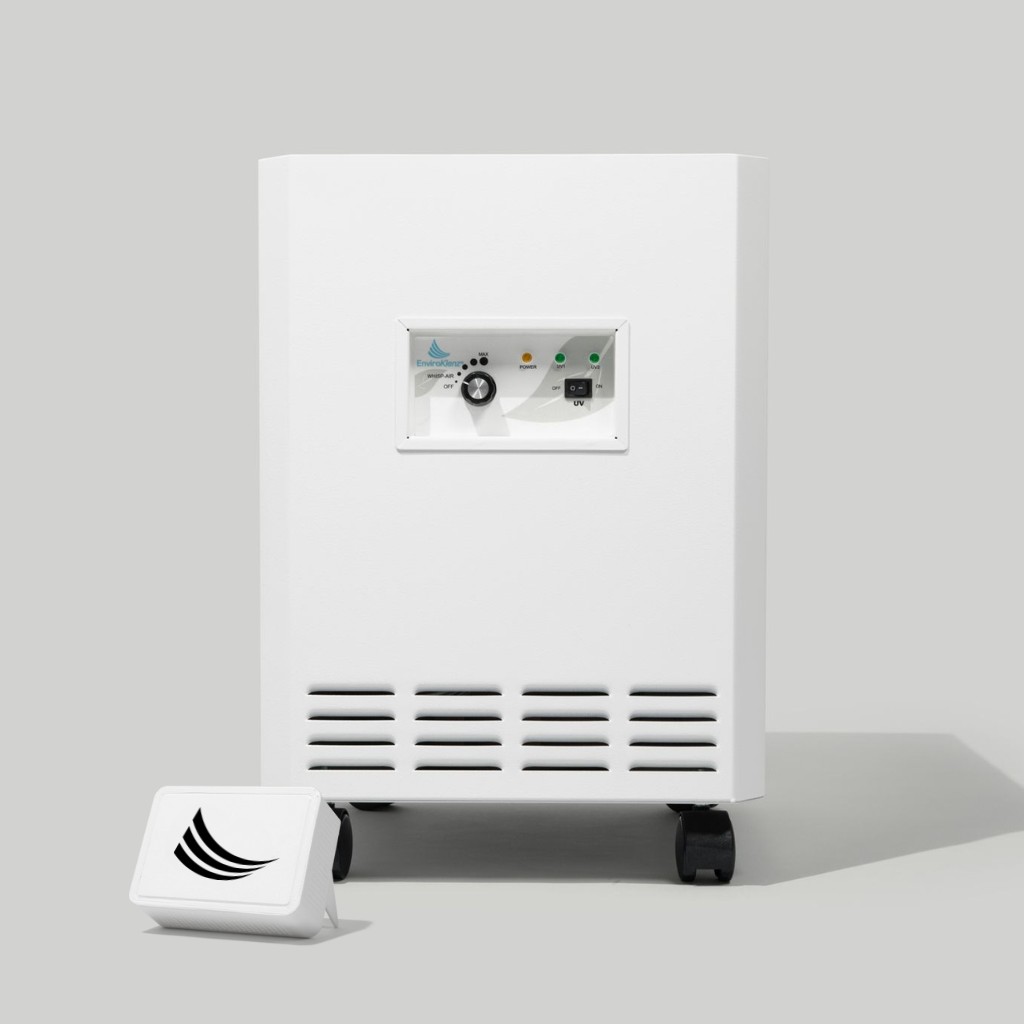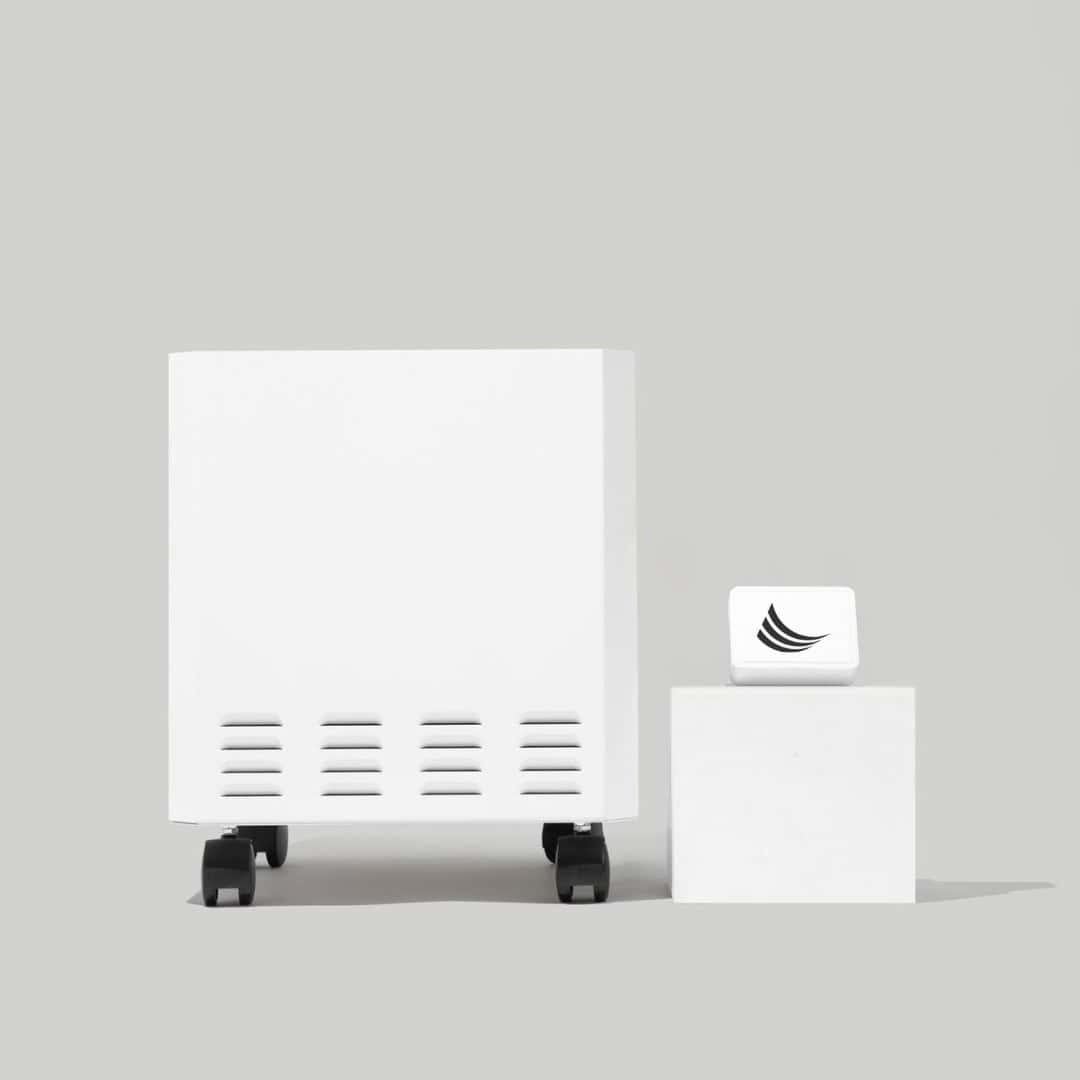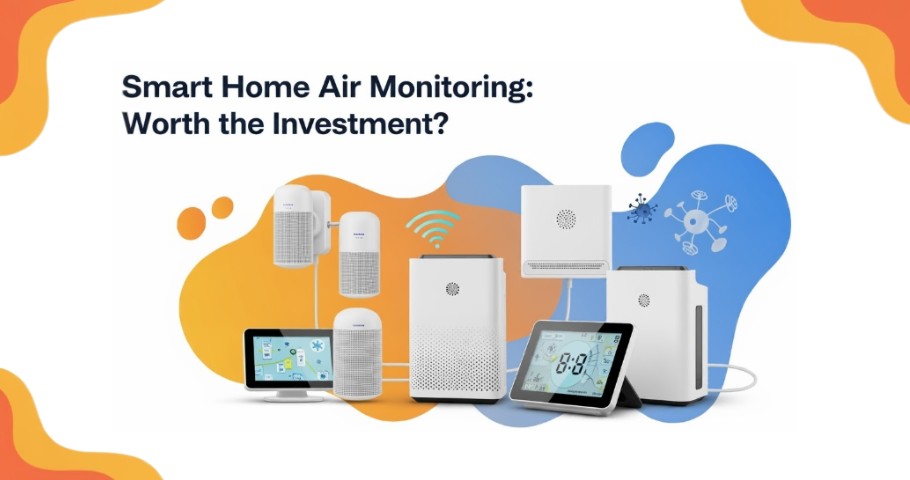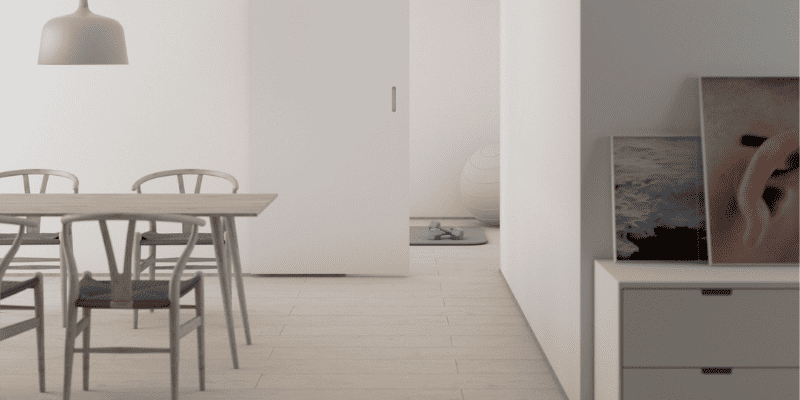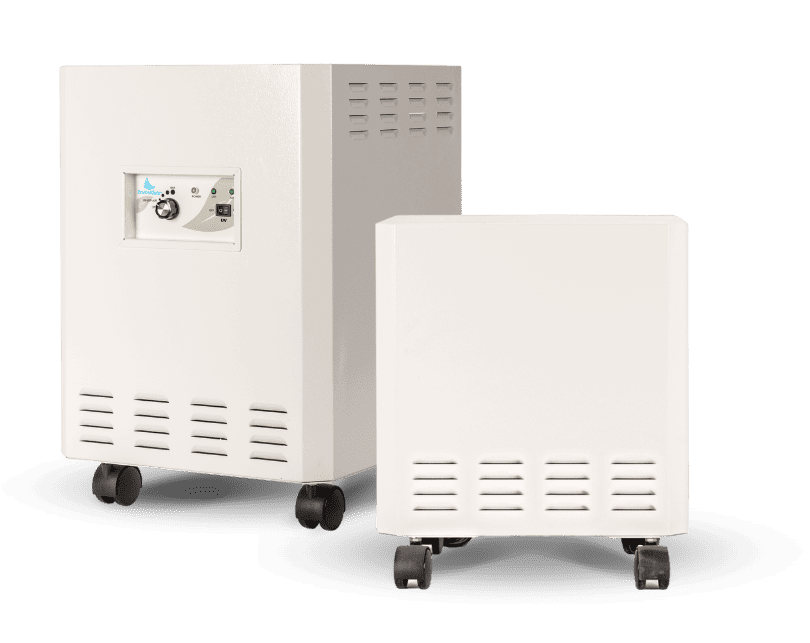Building a new home or renovating the home you currently reside in will leave you with many decisions, some of which will be critical to both the air quality in this environment and the health of those that are exposed to this tainted air on a daily basis. Building materials are among one of the most hazardous items to an indoor environment – as they are packed full of potentially toxic materials that will overtime release dangerous chemicals into the air of this enclosed area. From new paint, new furniture, wall additions inside the home, and even the removal and replacing of new flooring can all be potential sources of the entrance of hazardous chemicals into the indoor air of your home.
New flooring has been found to contain a large number of different chemicals within its composition that when installed into an indoor environment like a home it will off-gas and release these chemicals into the air of this enclosed area – leading to a dangerous level of pollution in the air that could have long-lasting effects on human health. Among flooring options for homeowners, one of the most popular options is vinyl flooring that will give your home a new, clean refreshing look. However, this type of flooring could be toxic flooring in your home that will release toxic chemicals into the air.
In this article, we are going to discuss the disadvantages of vinyl flooring, the chemicals that it releases into the air, and how you can effectively remove the chemical pollutants produced from vinyl flooring out of your home’s air after installation.
Selecting a non-toxic flooring
Flooring is an item inside your home that can be filled with a mix of different chemicals that can release into the air and pollute the air quality indoors. Indoor air pollution and air quality have become a major concern in recent years as the EPA (Environmental Protection Agency) has conducted extensive research to show that many indoor environments can actually be more polluted and more toxic than that of outdoor environments.
When it comes to the installation of new flooring into a home this building material will release potentially toxic chemicals into the environment that are known as VOCs (Volatile Organic Compounds). These VOCs can become airborne into the air and significantly taint the indoor air quality – and thus it is important to do your research to select a non-toxic flooring inside your home that will not pollute and taint your indoor air quality.
Disadvantages of vinyl flooring
Is vinyl flooring toxic? When it comes to selecting the ideal flooring for your home, many consumers are opting for vinyl flooring that is durable, versatile, and cost effective that will save you some major money. However, this type of flooring although it seems like the perfect flooring to select in your home, it actually is packed full of toxic chemicals that can pollute your indoor air and possibly effect the health of those exposed to this environment. A recent study that was conducted found that vinyl flooring contains toxic chemicals that include phthalates, lead, flame retardants, and VOCs like formaldehyde that will off gas into the air after the installation process in a home and taint the indoor air quality to hazardous levels.
Over 14 billion pounds of vinyl flooring is manufactured in the United States each year and installed into homes and other indoor spaces. This can lead to a lot of environments that are plagued with toxic chemicals in the air that are produced through off gassing that can take place for a long period of time after the installation is completed. Vinyl flooring will also produce other hazardous chemicals into the air from the adhesives that are used to install the flooring. These adhesives will contain lead and other VOCs that once it becomes acclimated to room temperature will turn into a gas and consequently off gas into the air.

Vinyl flooring toxic fumes
Vinyl tile flooring is constructed of new or recycled polyvinyl chloride or PVC that is known to be one of the most environmentally hazardous consumer materials that are produced for flooring. The PVC will create a large number of toxic chemicals like dioxins and phthalates that are released into the air and can produce toxic fumes into the environment. The chemical fume that is produced from this type of flooring is a result of off-gassing that releases the chemical into the air and affects indoor air quality, and as it releases this chemical it will create a pungent odor that will permeate throughout the entire indoor space.
How long does vinyl flooring off-gas
During the production of materials such as vinyl, the use of chemicals within this item will lead to a process that will occur in this indoor space called off-gassing. Off-gassing is identified as the release of a chemical, particularly a harmful one, that will turn into a gas at room temperature and will expel into the air, leaving this space significantly compromised by the released chemicals. The off-gassing of vinyl flooring chemicals will be a painstakingly slow process that can progress for some time after the installation – the duration of time will depend on a variety of factors such as the number of chemicals released into the air, the ventilation in the space, and the size of the environment that is impacted by the off-gassing. In reality, the off-gassing should be the strongest during the first two weeks and continue to off-gas for up to months after it is placed into your home.
Vinyl flooring health risks
After vinyl flooring is installed inside of your home, the chemicals that are released from the flooring into the air will off gas and create a pungent odor in the environment. The toxic fumes that are produced into this space are a product of the off gassed chemicals in the air that when inhaled and/or exposed to human health will result in very hazardous and potentially catastrophic health risks in those individuals in the environment. From the chemicals produced from the actual vinyl itself to the chemical (VOCs) used to install the vinyl like the adhesives, they can all create a toxic environment for your home.
The symptoms that can follow after toxic vinyl floors are installed into your home can include the following:
- Eye, nose, and throat irritation
- Headaches
- Nausea
- Allergic skin reaction
- Fatigue
- Dizziness
- Conjunctival irritation
- And liver and kidney damage
Construction air purifier for VOCs
When it comes to the release of chemicals into your home from construction or home renovations the best way to effectively mitigate these chemicals from the air and help to improve the conditions in this indoor space is to buy and utilize an air purifier for VOC removal. There is an array of different air purifiers that are currently available to consumers that can all focus and mitigate certain pollutants from the environment such as noxious odors, allergens, particulates, and even chemicals from the air.
The EnviroKlenz Mobile Air System is the ideal air purifier for a wide variety of airborne pollutants that can be found in your air from allergens, noxious odors, chemicals, and microorganisms. The EnviroKlenz Air Purifier uses a two-stage filtration that includes a VOC air cartridge utilizing the EnviroKlenz patented earth mineral technology that is able to effectively interact with chemicals like VOCs and noxious odors created from these chemicals from the air through neutralization. The second stage is a hospital-grade HEPA filter that is able to filter particulate matter as small as 0.3 microns in size which will include particulates like allergens.
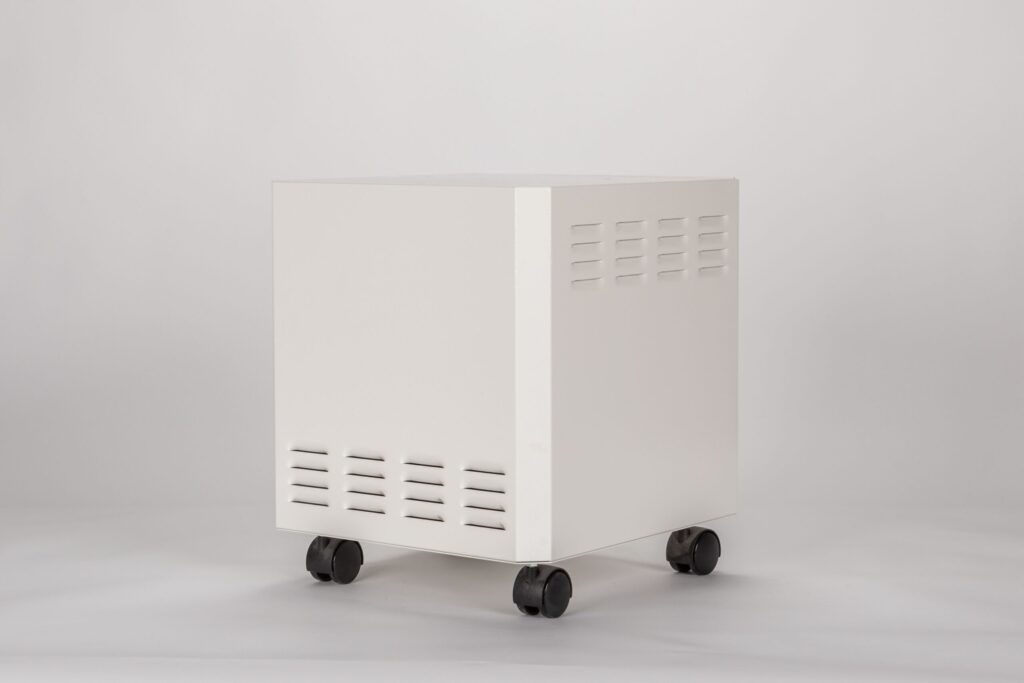
When it comes to construction inside your home like the installation of new flooring, the EnviroKlenz Air System will be able to pull the contaminated air from the toxins produced from the new flooring and filter out the VOCs, formaldehyde, PVC and other chemicals that are off-gassed into the air – as well as break down and neutralize the odors created from these released chemicals.
EnviroKlenz® Medical Disclaimer:
“Any information that is provided on this website is not for the use by any commercial or personal entity without expressed written consent of the blog author. The material and statements illustrated within this blog are not intended to diagnose, treat, cure, or prevent any diseases or medical conditions. Nor does the author in any way guarantee or validate the validity, totality, or efficacy of any claims and will therefore not be held responsible for the content of any claims. Always consult your medical physician for any specific medical advice or recommendations.”
